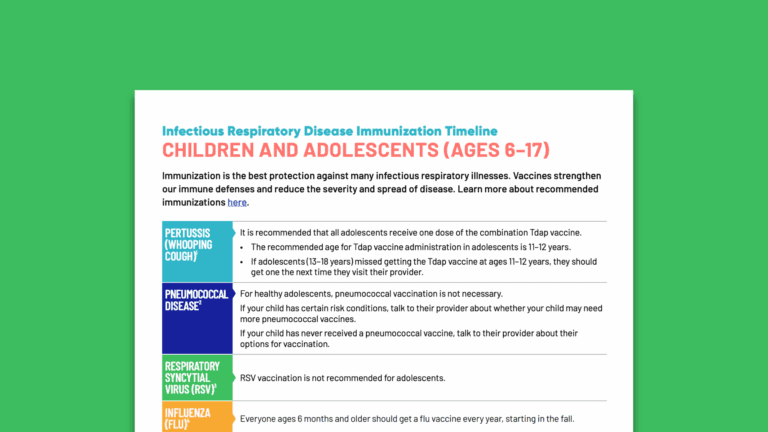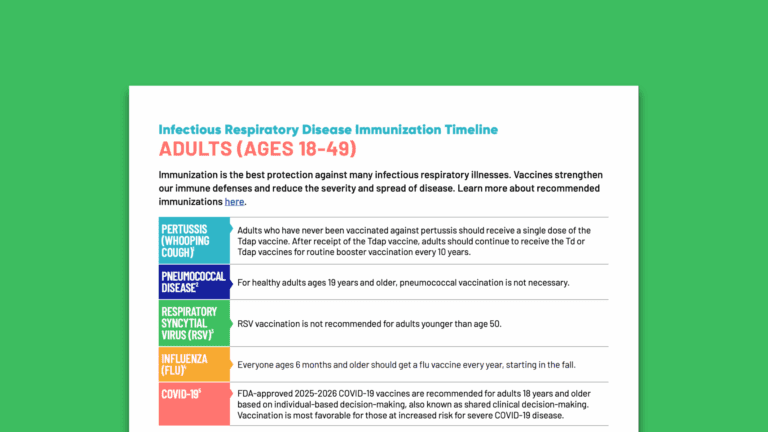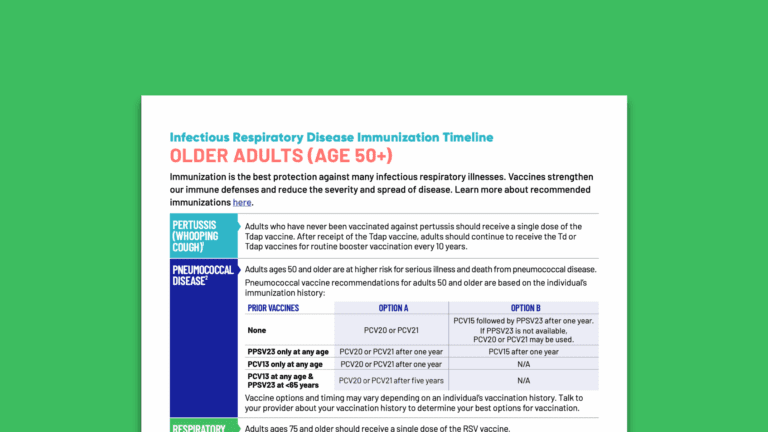Vaccines: Safety & Effectiveness
Need vaccine information?
Check out the resources below.
Visit
Visit
For decades, vaccine development in the U.S. has followed a gold-standard review process that includes rigorous research, multi-stage clinical trials, robust regulatory review and approvals, and ongoing safety monitoring once a vaccine becomes approved and recommended.
Respiratory vaccines receive intense safety monitoring, and safety and effectiveness studies include children and teens. Learn more about the process below.
Are vaccines safe?
According to the Centers for Disease Control and Prevention (CDC), the U.S. has the safest vaccine supply in its history. The U.S. operates a long-standing vaccine safety system to ensure vaccines are as safe as possible for the public. This includes clinical trials, safety studies, and continuous monitoring for vaccine safety.
What is the U.S. approval process for vaccines?
Approval
Before a vaccine is available to the public, it undergoes extensive testing and licensing. As part of this process, the Food and Drug Administration (FDA) reviews clinical trial data to ensure the vaccine is safe and effective before it becomes widely available. The approval process begins with extensive research and clinical trials to assess the vaccine’s safety, effectiveness, and optimal dosing. This careful evaluation involves multiple phases, where the vaccine is tested on increasingly larger groups of participants to gather specific data on its benefits and potential side effects. Only after these evaluations does the FDA approve a vaccine for public use, ensuring it meets the highest standards of safety and efficacy.
Recommendation
Following FDA approval, CDC’s external advisors, called the Advisory Committee on Immunization Practices (ACIP), develop recommendations for CDC to consider on the use of a vaccine in the U.S. When developing its recommendation, ACIP evaluates key areas of interest, such as safety and effectiveness, public health benefit, and cost considerations. After a vaccine is licensed and recommended for public use, both CDC and the FDA continue to monitor for vaccine safety and effectiveness.
Emergency Use Authorization
In certain situations, such as public health emergencies like the COVID-19 pandemic, the FDA may expedite this approval process through mechanisms like Emergency Use Authorization (EUA). This allows for the use of vaccines that have shown safety and efficacy in initial studies, providing timely access to potentially life-saving vaccines when no other options are available.
Latest Resources

CDC Guidance | Childhood | COVID-19 | Flu | Pertussis (Whooping Cough) | Pneumococcal Disease | RSV | Vaccines

